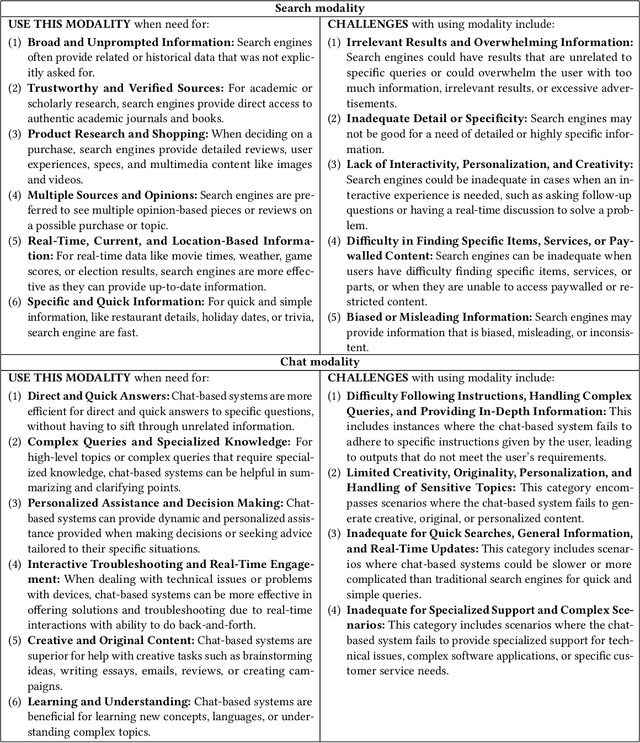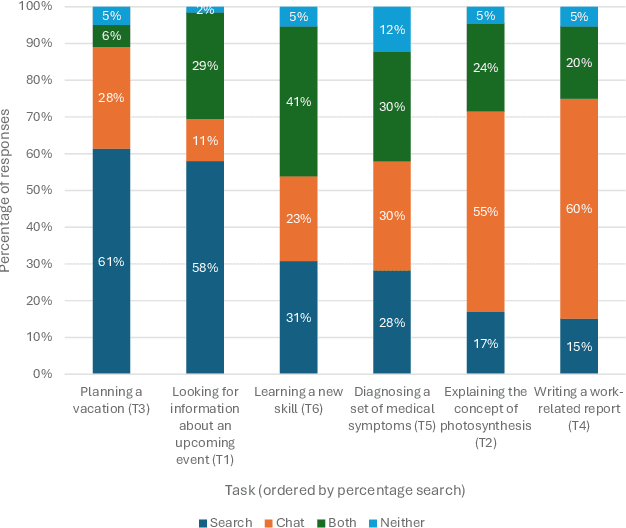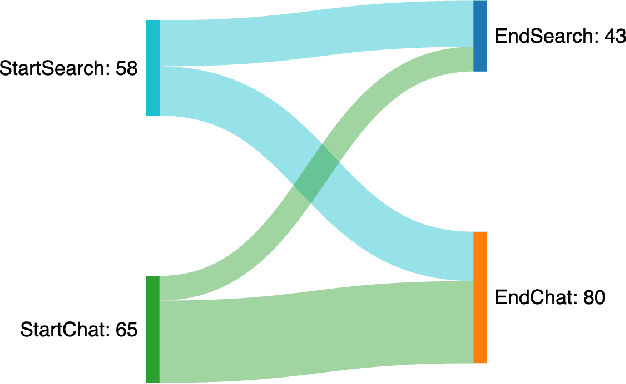Panmodal Information Interaction
Paper and Code
May 21, 2024



The emergence of generative artificial intelligence (GenAI) is transforming information interaction. For decades, search engines such as Google and Bing have been the primary means of locating relevant information for the general population. They have provided search results in the same standard format (the so-called "10 blue links"). The recent ability to chat via natural language with AI-based agents and have GenAI automatically synthesize answers in real-time (grounded in top-ranked results) is changing how people interact with and consume information at massive scale. These two information interaction modalities (traditional search and AI-powered chat) coexist in current search engines, either loosely coupled (e.g., as separate options/tabs) or tightly coupled (e.g., integrated as a chat answer embedded directly within a traditional search result page). We believe that the existence of these two different modalities, and potentially many others, is creating an opportunity to re-imagine the search experience, capitalize on the strengths of many modalities, and develop systems and strategies to support seamless flow between them. We refer to these as panmodal experiences. Unlike monomodal experiences, where only one modality is available and/or used for the task at hand, panmodal experiences make multiple modalities available to users (multimodal), directly support transitions between modalities (crossmodal), and seamlessly combine modalities to tailor task assistance (transmodal). While our focus is search and chat, with learnings from insights from a survey of over 100 individuals who have recently performed common tasks on these two modalities, we also present a more general vision for the future of information interaction using multiple modalities and the emergent capabilities of GenAI.
 Add to Chrome
Add to Chrome Add to Firefox
Add to Firefox Add to Edge
Add to Edge